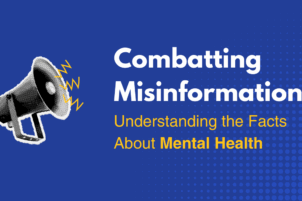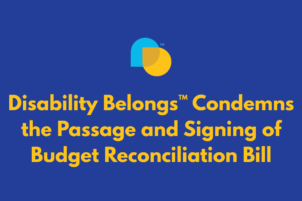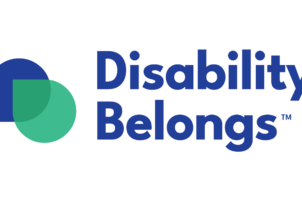African Americans with Disabilities Much Less Likely to Be Diagnosed and Receive Services
Des Moines, Iowa, Jan. 11 – As the Democratic candidates for president address the Black and Brown Forum tonight, the nation’s mayors are calling on the candidates to speak out on urban issues impacting America’s cities.
A major issue in cities across the country is violence. People with disabilities (PwDs) are twice as likely to be victims of crime than people without disabilities. In addition, they are more likely to be victims of police attacks.
“With twice as many Americans with disabilities under physical attack and repeatedly victims of police violence, we have a long way to go in America before people with disabilities can be safe, respected and have the same opportunities as everyone else. Additionally, minorities are far less likely to get the screening and services they need for early interventions that can help them succeed in jobs and in life,” said Jennifer Laszlo Mizrahi, president of RespectAbility.
In 2013, which are the most recent statistics available and were released in 2015, the rate of violent crime against PwDs was more than twice the rate for people without disabilities, while PwDs between 12-15 and 35-49 were three times more likely to be victims of violent crimes.
People with disabilities more likely to be victims of police attacks
A Supreme Court amicus brief filed by the ACLU in San Francisco v. Sheehan stated, “a review of available reports indicates that at least half of the estimated 375 to 500 people shot and killed by police each year in this country have mental health problems.”
While the vast majority of officers only want to protect the community they patrol, officers not properly trained in dealing with PwDs are bound to make mistakes.
When Freddie Gray died in police custody in Baltimore, much attention was paid to his race but less was paid to the fact he was an individual with a disability. It is well documented that Gray had lead poisoning a child. While we are still trying to understand the full ramifications of lead poisoning, advocates and studies say it can diminish cognitive function, increase aggression and ultimately exacerbate the cycle of poverty that is already exceedingly difficult to break. In Gray’s case, racial discrimination is compounded by disability discrimination. And Gray’s death was not an isolated incident, with similar cases across the country.
This does not even take into account people with other disabilities who were improperly handled by police, due to insufficient officer training. For example, police may think people with epilepsy, diabetes, cerebral palsy or disabilities resulting from a stroke are instead intoxicated or using drugs – and therefore subjected to unnecessary force by officers.
Likewise, too many innocents of all abilities and races are being killed. And still, we recognize and value the role of police and the good intentions of the vast majority of those in law enforcement.
Police must be trained in how to respond to individuals with developmental disabilities of all races. People who communicate, think, learn and emote differently must have the accommodations, supports and guidance needed to level the playing field. This also means that civil workers in a city like Baltimore in which hundreds of children have sustained lead poisoning must receive training to ensure public safety for all citizens. It is also vital for children of ALL backgrounds to get the testing and services they need to determine if they have a disability and to enable early intervention that can bring successful outcomes.
Solution for City Mayors: Employment
In the disability community in the Baltimore, Maryland, area, only 43 percent of working-age PwDs aged 21 to 64 in Baltimore County are employed compared to approximately 80 percent of persons without disabilities. Additionally, only 27 percent of working age PwDs in Baltimore City are working compared to approximately 72 percent of people without disabilities. While the ADA and IDEA are necessary and vital laws, they are not sufficient to provide the opportunity outcomes needed by Americans with disabilities. As women and minorities still have a long way to go, they have been able to make significant strides in joining the workforce. Thus, the gap in workforce participation between those with and without disabilities has increased dramatically.
In 2012, vocational rehabilitation obtained only 2,506 jobs for PwDs in all of Maryland combined. Meanwhile, local employers need quality employees and, with the use of best practices, PwDs can offer the talent employers seek. Jobs are a part of community healing because they give people dignity, respect, income and community.
Among the greatest barriers to the employment of PwDs are public attitudes, ignorance surrounding the issues, and a lack of awareness of best practices. Another major gap has been lack of funding for and implementation of proven programs. When spending has been allocated, such as the $252, 853,883 in stimulus funds to Baltimore City over the past 5 years, it helped some effective programs. However, with the recent passage of the Workforce Investment and Opportunities Act, much more good can happen.
Ongoing low employment expectations, negative stereotypes and a lack of appropriate transition services combine to lead to lives of isolation, poverty, poor health outcomes and higher rates of both victimization of, and crime by, PwDs. Additionally, students with disabilities are far more likely to drop out.
As the mayors gather to discuss priorities for their cities, employment for PwDs should be a top issue for them and all the candidates running for president.
RespectAbility, a nonprofit organization working to empower people with disabilities to achieve the American Dream by entering the workforce, is nonpartisan and neither rates nor endorses candidates. Read The RespectAbility Report: http://therespectabilityreport.org/.
Contact:
Lauren Appelbaum: 202-591-0703, LaurenA@RespectAbility.org








